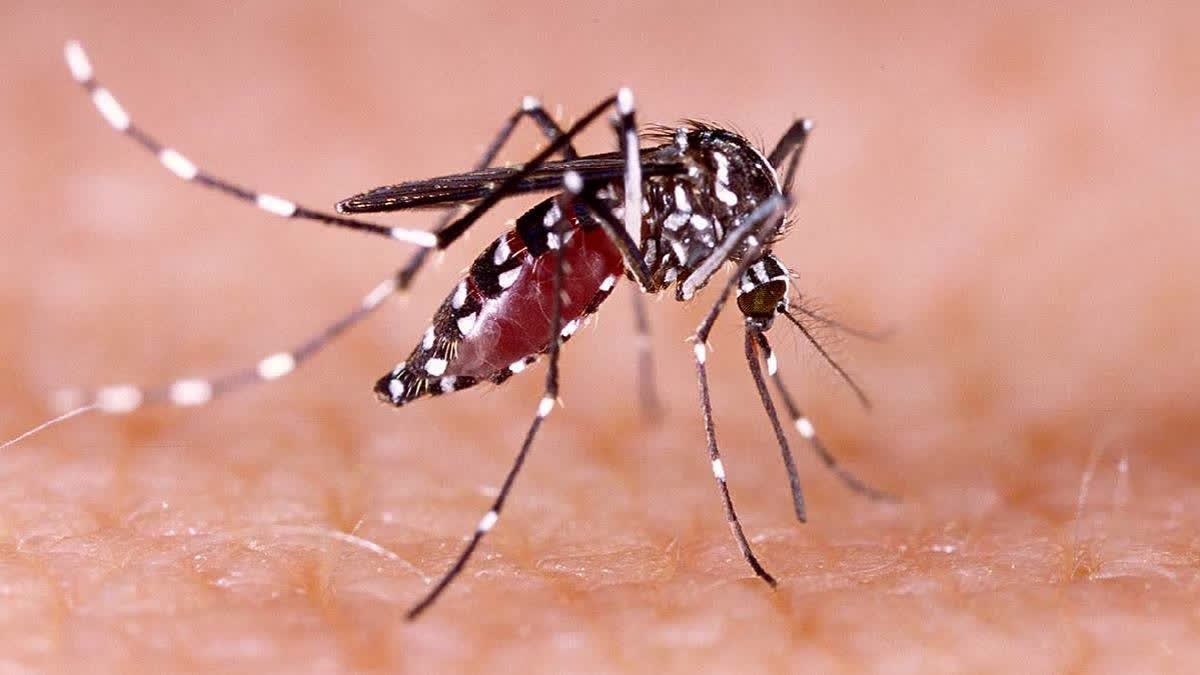New Delhi: The Dengue virus could become more virulent due to increasing temperatures, according to a study that could help in predicting and mitigating the severity and virulence of the recurring tropical disease that witnesses an outbreak in the monsoon.
Researchers at Rajiv Gandhi Centre for Biotechnology (RGCB) in Kerala found that dengue becomes more severe and hostile in animal models when its virus (DENV) while being grown in mosquito-derived cells is exposed to higher temperatures.
The research, published recently in the FASEB journal, can help in predicting and mitigating the severity and virulence of dengue which has an estimated global disease burden of 390 million cases per year.
“Dengue being a mosquito-transmitted disease, the ability of the causative virus to grow in the cells of mosquito as well as in humans is a critical factor in viral virulence. The body temperature of mosquitoes is not constant as in higher animals and it increases or decreases with the environmental temperature,” said Easwaran Sreekumar, the team leader of the research from RGCB.
“So far it is not known whether the higher temperature growth condition will affect the virulence of the virus. For the first time, our recent study points out that there is such a possibility. DENV cultured at a higher temperature in mosquito cells was significantly more virulent than the virus grown at a lower temperature,” the researchers said.
Also read: Assam grappling with dengue, Japanese Encephalitis cases
The team of researchers at RGCB involved in the study includes Ayan Modak, Srishti Rajkumar Mishra, Mansi Awasthi, Sreeja Sreedevi, Archana Sobha, Arya Aravind, Krithiga Kuppusamy, and Sreekumar.
“In seasons of enhanced environmental temperature, with intermittent rainfalls promoting mosquito growth, there is a chance of emergence of more virulent dengue virus and severe disease conditions. In the dengue outbreaks happening in various parts of the country, this aspect has never been looked into. Our study alludes to the growing implications of global warming and its possible effects on infectious disease dynamics,” the researchers added.
It was earlier observed that a relatively higher environmental temperature shortens the incubation period of the virus in mosquitoes, resulting in an increase in human transmission.
RGCB Director Professor Chandrabhas Narayana said the researchers have been making efforts to understand why dengue becomes serious at times. “But even after decades of research, there are still no effective vaccines or antivirals to control or prevent the recurring disease. This study has major implications in predicting the severity of dengue outbreaks,” Narayana said.
Also read: Dengue cases shoot up in Ghaziabad, Noida; result of recent floods, heavy rains
The study was conducted in a mouse model, where the virulent strain obtained from the higher temperature growth caused the enhanced presence of viruses in the blood, haemorrhage, and severe tissue changes in vital organs such as the heart, liver, and kidney, which are the hallmarks of the disease, and even death.
Dengue is a viral infection caused by Dengue virus (DENV) and transmitted to humans through the bite of infected mosquitoes. Globally, the incidence of dengue is on the rise over the years, with a corresponding increase in disease severity and fatality. While in the majority of the patients, the disease is mild and self-limiting, in some patients, it causes life-threatening thrombocytopenia or extremely low platelet count in blood, and shock syndrome. (PTI)



